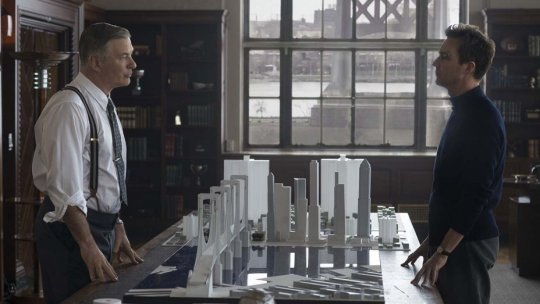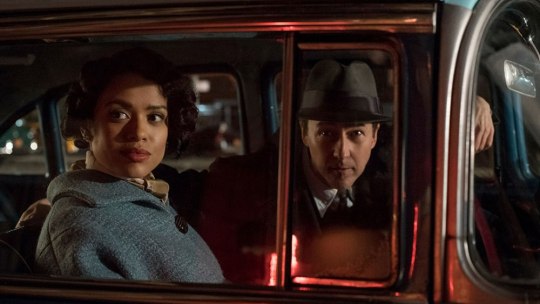#and even apotheosis' kindness is so very conditional. she just wants an audience. and shes so willing to hurt you to get what she wants
Explore tagged Tumblr posts
Text
why are people saying the princess is too nice to you in the pristine cut all of a sudden. what the fuck were you guys playing. where the hell are we
#talk tag#vague spoilers in tags#this is making me feel insane. is this in reference to the den? the den where it expanded upon your previous ability to be kind to her--#--that she takes because she is at her lowest?? that we already knew she would take????#or the route stemming from the damsel? where she already doesnt lift a finger to protect herself and its only made worse--#--because youre being even more cruel to her now??? and shes just resigned to it??#or the offshoot of the prisoner?? where she already wants to be on your side? and yet STILL hurts you and is cruel to you in a detached way#the spectre offshoot is kind but its very clear that this is like an alternate telling of the wild which was ALREADY a softer version of he#and like. the fury. in her entirety. there might be potential catharsis but that shit is brutal.#and even apotheosis' kindness is so very conditional. she just wants an audience. and shes so willing to hurt you to get what she wants#idk this new avenue of argument all just feels very nitpicky. this is such a non-issue#if you want her to be meaner to you maybe dont play routes where she doesn't hate you and then pick nice dialog options
18 notes
·
View notes
Text
Movie Review: Motherless Brooklyn

The greatest villains of noir are never the central antagonists. The corrupt cops, the slimy businessmen, and the small time hoods and assassins typified by the genre’s heyday are of course all vital to the seedy underrealms these movies sink us into, but the true villain is always the world itself, and specifically the rotten and festering systems whose waste drips down and creates the conditions for battered, weary detectives and crooks with no hope in the first place. This was implied in most classic noir, but Edward Norton’s Motherless Brooklyn makes it explicit. It focuses on a man seen by others as a freak, trying to do a good thing in a city that exists because of bad things. He’s up against such a vital underpinning of his entire world that he might as well be trying to punch out the moon.
Lionel Essrog is not exactly the first person you might choose in such a fight, even if one overlooks his Tourette’s syndrome, which in the decidedly unenlightened 1950’s is unlikely. He’s one of several detectives working for the aging Frank Minna (Bruce Willis), whose particular skills would have been equally applicable on the other side of the law. Also under Minna, in a crew the older man pulled from the morass of an abusive orphanage and led through World War II, are the force-and-bluster tough guy Tony Vermonte (Bobby Cannavale), who has an interesting relationship with Minna’s widow (Leslie Mann); the sharp information-gathering Danny Fantl (Dallas Roberts); and the reserved and slightly bumbling Gilbert Coney (Ethan Suplee). The film opens with a terribly thrilling sequence in which Minna seems to be trying to make a deal with some underworld figures, and as one might expect the deal goes wrong, resulting in Minna’s eventual death.
Let’s take a moment and look at that sequence. It takes up the first half hour or so of the film, and it takes its time. Essrog, played by Norton, listens in for a signal from Minna, and you know something is going to go wrong. Yet where other movies might make that a quick and easy scene, Norton gets our hopes up that Minna might live, and it is genuinely affecting when he doesn’t, because of how much he clearly meant to our protagonist. This death is more than just a device to set off the plot of the film. It defines Lionel’s key character traits: loyalty to those he trusts, suspicion towards most everyone else, all of the wariness that a lifetime of being infantilized by others would give a man. His character is not defined by Tourette’s, which, for the record, is presented accurately as the repetition of tics and phrases rather than by the cliche and rare repeating of profanity. His photographic memory is a tool for detective work, but also a burden; imagine never forgetting anything, and if you’ve suffered at all in life you might realize that isn’t a superpower. He wears his boss’s old hat and coat, in tribute to the man rather than to try and be him. Lionel is a fully developed character, and not a gimmick. The film is patient with him and with the plot, the kind of patience lacking in modern films where audiences will sit for more than two hours only if computer effects are involved.

His case is no gimmick, either, but a fully developed and twisted web that goes, of course, up to the Very Top. The central question: why was Minna, ostensibly a licensed private eye, talking to mobsters as if they were dealing with each other? Lionel digs into this, and it becomes clear it involves the city’s powerful planning commissioner, Moses Randolph (Alec Baldwin). He seems able to demand whatever he wants from the government, behaves like a Godfather instead of a public servant, and is involved in the demolition of slums. Ostensibly, the plan is to provide better housing for the mostly black residents, an assertion which is challenged by two people. The first is wary-but-idealistic housing activist Laura Rose (Gugu Mbatha-Raw), who develops a connection with Lionel that feels true and complex and not like an obligatory screenplay romance. Mbatha-Raw is a seriously undervalued actress, and here she represents the counter-culture of jazz, which was primarily African-American and seen as degenerate at the time. Her uncle Billy (Robert Wisdom) and cool-as-ice trumpet-playing friend (Michael K. Williams) have some level of insight into what exactly is happening to Brooklyn’s poor black population, and they become allies. It must be noted that scenes in nightclubs are handled perfectly, feeling like the close, crowded, smoky places that jazz clubs should be.
The second is a ragged man with a frantic voice named Paul (Willem Dafoe), who appears at meetings and angrily whips the crowd into frenzies against Moses. He lays out what crooked deals are going on, but encourages Lionel to be the one to stop it; he cannot, for reasons that will be revealed. I found him the most fascinating supporting character on the canvas, and a perfect role for Dafoe. In movies, most of the good-aligned characters we meet will eventually abandon all self-centered interests and heroically join the cause at great self-sacrifice. Film noir is decidedly unsuited to such sentiment, but in the old days often suffered from it nonetheless. Paul is the apotheosis of that: he is legitimately angry at the conspiracies he sees, but has been too hurt by his own failures to fix them in the past, and now wants to pass the buck so he does not have to suffer any more losses. In our heart of hearts, most of us know we are more like Paul.
Earlier I mentioned the look of the jazz world, but I must mention the look of the rest of the world, as well. Regular Mike Leigh cinematographer Dick Pope films a mid-century New York reproduced by production designer Beth Mickie, that is lost, where boat-sized cars rumble down narrow streets and dark shadows are hidden in the eaves of bridges and corners of doorways. Lionel is at one point invited to meet with Moses to strike a deal, and Moses’ office is as spacious as the rest of the city is not; in an excellent wide shot, he patrols this throne room as a king, passing judgments and decisions entirely as it pleases him. This is not a man who will fall like a typical movie crook, and indeed the film leaves open whether Lionel succeeds at all.
Norton, who is friends with novelist Jonathan Lethem, has, with the author’s consent, done what a filmmaker should: used the parts of the book that suit, and changed those that did not. Most notably, he has moved the 90’s setting (this project has been long gestating) to the 1950’s and wrapped up the plot in one of our great modern national stains, the New York housing discrimination that still affects the African-American community today. The parallels are both obvious and buried, and though Norton has discussed the connections between Moses and Donald Trump, this is not an overtly political picture. It is instead a deeply involving mystery with highly engaging characters and an intriguing world, that happens to have greater points under the surface for those who are looking.
Verdict: Highly Recommended
Note: I don’t use stars, but here are my possible verdicts.
Must-See
Highly Recommended
Recommended
Average
Not Recommended
Avoid like the Plague
You can follow Ryan's reviews on Facebook here:
https://www.facebook.com/ryanmeftmovies/
Or his tweets here:
https://twitter.com/RyanmEft
All images are property of the people what own the movie.
#edward norton#gugu mbatha-raw#bruce willis#movies#motherless brooklyn#Bobby Cannavale#ethan suplee#dallas roberts#noir#alec baldwin#new york#jonathan lethem#willem dafoe#michael k williams#robert wisdom
9 notes
·
View notes